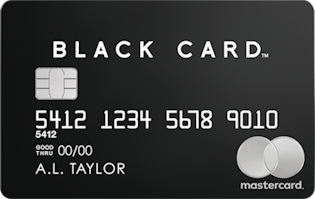
Security Alert
Personal safeguards in the 21st century go beyond a sophisticated show of force.
Like car phones, husky bodyguards with earplugs and crisp suits hiding handguns were a luxury of the ’90s. While those types of guardians are still employed, today’s protective service companies can work in more nuanced and sophisticated ways than simply a show of force. “Those of us who come from the world of the US Secret Service look at the White House as one big family office,” says Arnette Heintze, who was part of the Presidential Protective Division guarding President and Mrs. Bush and President and Mrs. Clinton. Today, his Chicago-based firm Hillard Heintze is one of the most respected names in protective services and many of his clients are members of The Forbes 400. “We try to do all we can to keep from having to put armed people with individuals,” he says.
Firms like Hillard Heintze are typically hired long before a specific threat is made. Would-be clients might call after experiencing a “wealth moment,” like selling a company. Once someone realizes their success makes them vulnerable, the threat of attention and security risks can be difficult to put out of mind. Protective service firms look at their clients’ entire lives—their residence, household employees, potential kidnapping and extortion threats, children’s schools, workplace, social media presence—and devise a comprehensive plan to keep families safe and feeling secure.
Some of the biggest concerns for security experts today are the laundry lists of threats swirling around cyberspace. There’s identity theft and ransomware, phishing and denial-of-service attacks. Criminals hack home security systems, commit reputation damage, and devise kidnapping-and-ransom plots using geo-tagging and online footprints. Mike White, a former Secret Service agent who oversees the family office practice at Hillard Heintze, notes that using free email services puts information at risk. White recommends clients have private domains and use the latest malware, virus, and password protection. LastPass (lastpass.com) automatically generates sophisticated passwords for all sites and stores them in a secure “vault” that can be accessed with one (long) master password. A company called Onyx (getonyx.com) claims to have enterprise-level software to prevent hackers. It’s much more sophisticated than what consumers typically use, and pricey: $1,099/month for a family of five.
Using social media incorrectly is like leaving the front door open. The post “Just touched down in Paris!” on Instagram or Twitter lets the whole world know your residence in Beverly Hills or Easthampton might be empty. Criminals plotting a kidnapping can locate exactly where posts are made thanks to phones’ built-in GPS metadata.
Using technology while traveling overseas is also a threat. In China, even with a virtual private network, computer users are still vulnerable. “The equipment through which you communicate and the period in which your equipment is connected to the Chinese network provides an opportunity for the network to insert code into your device that can remove information from that device,” says Christopher Falkenberg, a former special agent of the Secret Service and president of Manhattan-based Insite Risk Management. “More importantly,” he says, “the code can potentially infect networks that you subsequently connect to.” Falkenberg recommends all his clients traveling to China bring a computer that has the bare minimum amount of data required to do their specific job. The device should have no stored passwords or other sensitive information. Once the device returns to the United States, it is quarantined and never connected to the US network.
Before a trip, security firms will do advance work just like the Secret Service does for the President of the United States. They scout hotels and roads for escape routes, gain a deep knowledge of local crime methodologies, and “involve local professionals worldwide, to understand the risks,” says Heintze, adding that threats change from region to region. In Hong Kong it might be mass protests and in Rio it might be carjackings. Heintze advises clients to never let their guard down in hotels. When a gentle knock is heard at the door, guests should not assume that it is for turndown service. “There is an enormous misperception among people that the hotel hallway is somehow different than the street they live on. It’s a vulnerability that people don’t think about,” says Falkenberg. But do keep in mind (no matter how much true crime media you’ve consumed) that the number one way Americans die overseas is in car crashes: Never drive in certain countries after dark.
Inside private homes, security experts focus on the outer, middle, and inner perimeters and protect each ring. Landscaping like a fence or hedge can do a lot of the outer perimeter work. Plant spiky Euphorbia (aka “crown of thorns”); Agave americana (aka “Sentry Plant”), which has long, sharp thorns and huge, cactus-like leaves; or a honey locust tree (covered with thorns sharp enough to puncture a tractor tire). Artificial intelligence cameras can be programmed to identify which people are allowed in certain areas at specific times of the day. If a camera picks up a person in an area at the wrong time, an alert can be sent to a virtual command center or one located on the property.
On the middle perimeter, doors and windows need protection. “We had a client that had a 500-pound door to their bedroom,” says White, “which is a nice heavy door, but in our assessment we discovered that it was held in with only half-inch screws.” Windows can be replaced with ballistic glass or sturdy hurricane-resistant glass. A bullet-resistant glass front door lets in light and has the added benefit of showcasing who is at the door, while ensuring they can never break in.
The inner perimeter surrounds what is most precious to clients, including children and personal documents. Families with large staffs might limit what zones specific employees have access to. Card readers and biometric access points read fingerprints and artificial intelligence cameras with face detection can be installed at sensitive locations like a home office or a bedroom.
When a threat does occur, a protective service firm can intervene in a way that law enforcement does not. Recently, a Hillard Heintze client called saying his daughter was being stalked by a 50-year-old man. “Stalking is pre-attack behavior,” says Heintze. “The police don’t know how to deal with it and are more concerned with filing a report.” In a situation like this, Heintze and his team will follow the same procedure as they would in protecting POTUS. They will “identify, assess, and manage the individual,” he says. His team will do a deep dive into the stalker’s background and find out if he or she owns firearms. They will uncover if they have ever researched assassination methods and other violence. To manage the threat, Heintze’s team might even reach out and form a personal connection with the stalker and enlist his/her family members, church members, and co-workers to monitor their behavior and seek mental health experts.
Heintze says the 2011 mass shooting in Tucson that wounded 18 people, including US Representative Gabrielle Giffords, and killed six could have been avoided by managing the threat because there were lots of warning signs. The shooter, Jared Lee Loughner, had a history of drug abuse, mental illness, and had purchased a handgun. He was rejected by the Army and thrown out of college. Loughner’s father reportedly became so concerned about his son’s behavior that he disabled his car at night to keep him home.
Before 1990, threats to presidents and others would come in the form of letters. The Secret Service amassed a library of every ink in the world so that it can analyze handwritten notes and gain insight about where the ink, and the threat-maker, might be based. Today, however, “people don’t write letters,” says Heintze. Instead, they are on social media. Top security firms monitor social media channels to see if an individual is on a path to violence, looking for warning signs such as “tone, rhetoric, and implied messages.” Top firms like TorchStone Global and Insite Risk Management use the company LifeRaft Inc.’s Navigator platform (liferaftinc.com), which scours social media (as well as the deep and dark web) 24/7 for threats. At public events, security experts set up geo-fences and determine whether anyone in the crowd is making hostile threats online. Frank Rodman, president and co-founder of TorchStone, successfully thwarted an attempt to publicly embarrass a high-profile philanthropist at a university using Navigator. “Our intel team picked it up through our filters,” he says, “and we were able to identify the person and communicate with our protection team at the event.”
How much does it cost to have protective services? It can be as little as $1,000 a day for a single military- or law enforcement–trained bodyguard. It can also cost millions. “If you want 24/7 protection for two principals, you can plan on hiring a minimum of five people,” says Heintze, adding that the number can quickly climb when adding children and multiple residences.
For decades Gavin de Becker & Associates in LA has been guarding the rich and famous, with clients like Cher and Olivia Newton-John. De Becker is also widely known as the head of security for Jeff Bezos. Now he has taken his protective services to the world of travel with The Private Suite at LAX. For a $4,500 annual membership (plus an additional one-way fee of $2,700) clients are escorted to personal suites with private TSA screening near the tarmac. Once they are ready to depart, a BMW 7 Series sedan whisks them to the plane. Total steps from car seat to plane seat? Seventy (versus the typical 2,200). Non-members can use the service too for $3,500 one-way.
One of the biggest tabs for personal security made public appears buried on page 63 of Facebook’s 10-Q SEC filing under the heading “other information.”
It reads: “On July 24, 2018, the Committee approved an annual pre-tax allowance of $10 million to Mr. Zuckerberg to cover additional costs related to his and his family’s personal security. This allowance will be in addition to the continued funding of Mr. Zuckerberg’s overall security program to cover the costs of security personnel for his protection; the procurement, installation, and maintenance of certain required security measures for his residences; and the usage of private aircraft for personal travel.”
No matter your needs, the important rule is to call for help long before you need it. Says Heintze: “If you call us in the middle of a crisis, you have called us too late.”
TOP FIRMS
Not all protective service companies are created equal. These four are the most respected in the industry and cater to high-net-worth and high-profile clients. TorchStone is currently protecting one of the 2020 US presidential candidates.
Hillard Heintze, Chicago
hillardheintze.com
TorchStone Global, New York
torchstoneglobal.com
Insite Risk Management, New York
insiteriskmanagement.com
Gavin de Becker & Associates, Glendale, California
gdba.com




